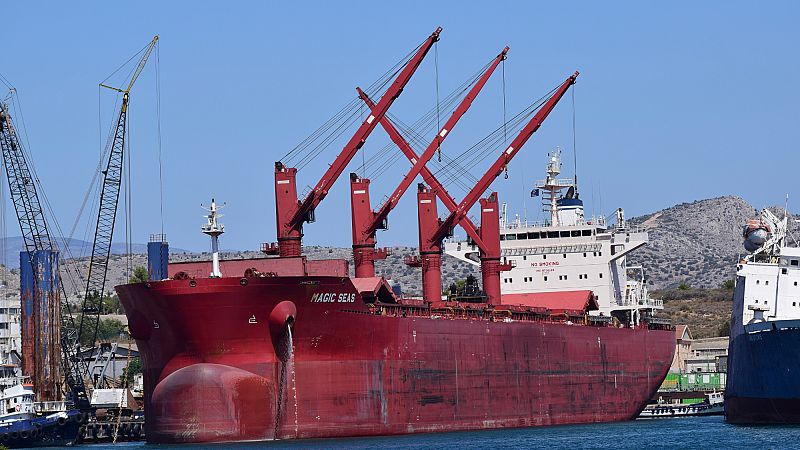Escalating Tensions in the Red Sea
Two seafarers are missing and two others are injured following an attack on a ship in the Red Sea, which has been linked to Yemen’s Houthi rebels. The incident occurred when the Greek-owned bulk carrier Eternity C was targeted by individuals in small boats and drones as it traveled north toward the Suez Canal. According to Operation Atalanta, the EU’s anti-piracy mission, the assault began on Monday night.
The crew of the Eternity C includes 21 Filipinos, one Russian, and three security personnel. The ship remains under continuous attack, surrounded by small craft, according to the United Kingdom Maritime Trade Operations Centre. Although the Houthis have not officially claimed responsibility for this specific attack, both Yemen’s exiled government and the EU force have attributed the incident to the rebel group.
This latest attack comes shortly after the Houthis claimed to have sunk another vessel, the Magic Seas, which is Liberian-flagged but Greek-owned. The Magic Seas was attacked in the same area near Hodeida, a Houthi-controlled port in Yemen. The 22-member crew was forced to abandon the ship and was later rescued by an Abu Dhabi Ports vessel.
Yahya Saree, the military spokesman for the Houthis, stated that his group carried out the attack on the Magic Seas and claimed it had been sunk. These events are unfolding in a critical period for the Middle East, especially as former U.S. President Donald Trump attempts to mediate a ceasefire in Gaza.
Ongoing Conflict and International Reactions
The Houthi rebels have repeatedly threatened to target U.S. ships if they participate in any attacks on Iran. In response to Israeli strikes on Houthi ports in Yemen, the rebels have launched missile attacks. This cycle of violence continues despite efforts by various parties to de-escalate tensions.
After starting his second term in January, Trump initiated a series of strikes against the Houthis. These actions were taken in response to the group’s attacks on more than 100 merchant ships in the Red Sea between November 2023 and January 2025. During this time, the Houthis sank two vessels and killed four sailors, significantly disrupting the flow of trade through the Red Sea, which typically handles $1 trillion worth of goods annually.
In May, the Trump administration announced a halt to its strikes against the Houthis, citing an agreement to cease attacks on commercial ships. However, since then, both Israel and the Houthis have continued launching missiles at each other, maintaining a volatile situation in the region.
Impact on Global Trade and Security
The ongoing conflict in the Red Sea has raised concerns about the safety of maritime trade routes. The Red Sea is a vital corridor for global commerce, and any disruption can have far-reaching economic consequences. The recent attacks highlight the growing risks faced by ships navigating these waters, particularly those owned by foreign entities.
As the situation continues to evolve, international stakeholders are closely monitoring developments. The involvement of multiple actors, including the Houthis, the U.S., and regional powers, complicates the path to stability. Efforts to establish a lasting ceasefire and ensure the safety of maritime traffic remain crucial in preventing further escalation of hostilities.
With the potential for increased violence and the impact on global trade, the international community must remain vigilant and proactive in addressing the challenges posed by the ongoing conflict in the Red Sea.







